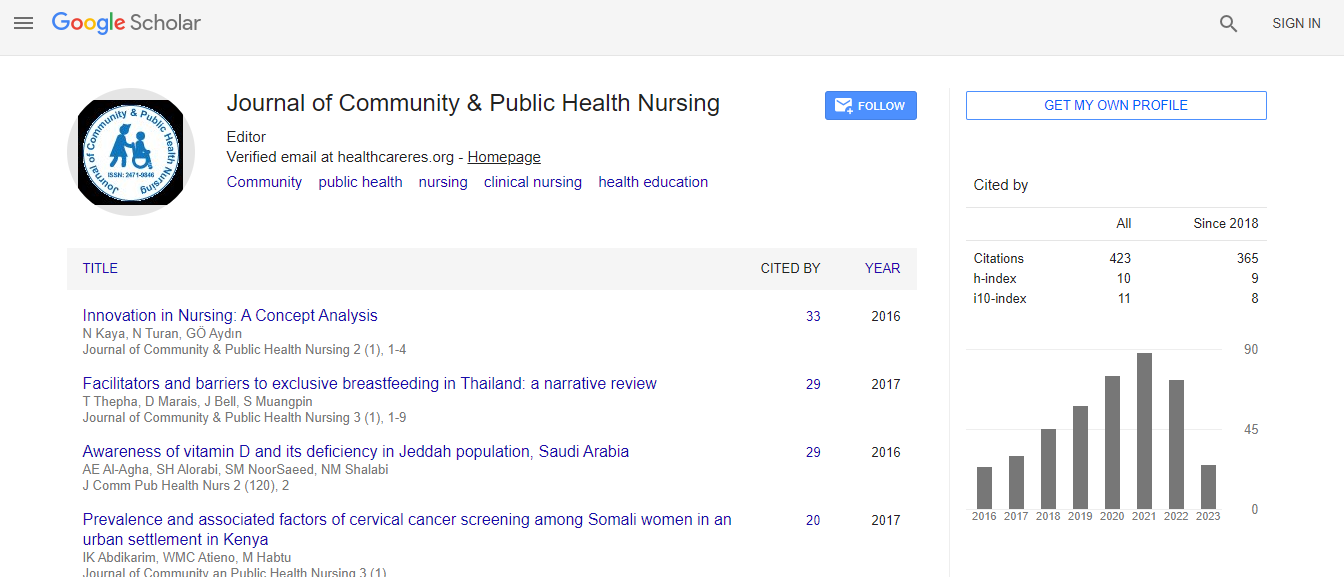Research Article
Awareness to Implementation on Select Quality and Patient Safety Indicators Among Nursing Staff
Ali Yawar Alam1* and Mohammad Khalid Alabdulaali21Strategy Management Department, Health Affairs Al Ahsa, Ministry of Health, Kingdom of Saudi Arabia
2Health Affairs Al Ahsa, Ministry of Health, Kingdom of Saudi Arabia
- *Corresponding Author:
- Ali Yawar Alam
Director Project Management Office (PMO)
Strategy Management Department, Directorate of Health Affairs Al Ahsa
Ministry of Health, Kingdom of Saudi Arabia
Tel: 00966542318776
E-mail: aliyawaralam@gmail.com
Received date: January 22, 2016; Accepted date: February 11, 2016; Published date: February 18, 2016
Citation: Alam AY, Alabdulaali AK (2016) Awareness to Implementation on Select Quality and Patient Safety Indicators Among Nursing Staff. J Comm Pub Health Nursing 1:111. doi:10.4172/2471-9846.1000111
Copyright: © 2016 Alam AY, et al. This is an open-access article distributed under the terms of the Creative Commons Attribution License, which permits unrestricted use, distribution, and reproduction in any medium, provided the original author and source are credited.
Abstract
Objective: This study aimed to determine the awareness level of the nursing staff for policies and procedures related to quality of care, patient safety and general safety and assess the congruence of knowledge with implementation.
Methods: Key informant interviews were conducted on 85 Nurses (Front line nurses) in a tertiary health care facility in April 2012 and implementation statistics on select quality and patient safety indicators were obtained from clinical audit programme (CAP) for the same month.
Results: The awareness level of the nurses on quality, patient safety and general safety was found to be good. The compliance on quality and patient safety policies was lower than the knowledge level. A conceptual framework has been devised addressing the knowledge-implementation gap.
Conclusion: The awareness level of the nurses on quality, patient safety and general safety was found to be good. The compliance on quality and patient safety indicators was lower than the knowledge level. The challenge of transforming knowledge to patient care practices needs to take account of work environment determinants (such as; strong general and departmental orientation of nurses, patient/nurse ratio, clinicians involving nurses in clinical decision making process and tracking outcomes of care, mutual trust among team members, teams of physicians and nurses learning together by doing rather than traditional teaching, effective supervision of nurses, and presence of enabling champions in the unit).

 Spanish
Spanish  Chinese
Chinese  Russian
Russian  German
German  French
French  Japanese
Japanese  Portuguese
Portuguese  Hindi
Hindi 
